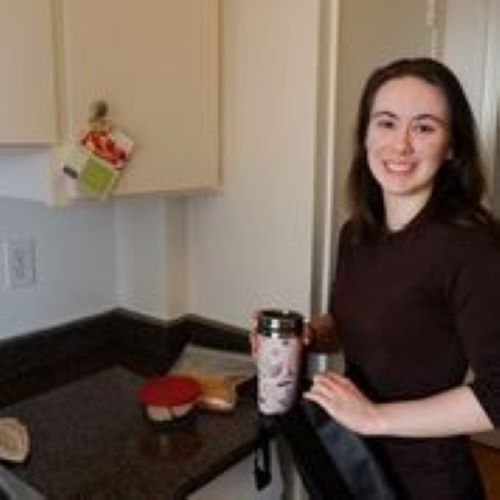HBA Sustainability Certificate
Empowering the next generation of sustainable leaders
I’m an HBA student pursuing a Business Administration/Psychology Dual Degree. I’m originally from Ottawa, Ontario and am fully bilingual in French/English. I have a passion for management and giving back to my community which has led me to take on many volunteer student leadership roles. Recently, I co-founded an Etsy Shop, Papeterie Amour, that sells French and English greeting cards. Outside of school and work, I enjoy crafting, cooking and baking, swimming and singing in choirs. I hope to one day hold a key role within an organization where I can lead a team that achieves great success.
What is your personal definition of sustainability?
My personal definition of sustainability is “a practice that can be maintained at the same rate without needing to be infused with any additional resources”. In other words, a practice that refuels itself. My definition extends to many sectors, including environmental sustainability, social and cultural sustainability, economic sustainability and even personal sustainability. I feel that there are many common misconceptions about sustainability, mainly that sustainable practices are more expensive and less luxurious. Personally, I believe that there is virtually no compromise to be had with properly-executed sustainable practices.
What role do you see sustainability playing in your professional career?
While sustainability is very important to me, I do not see myself pursuing a sustainability-based career. Instead, I see myself being a strong advocate for sustainability within my workplace. There is a sustainability consideration in most business decisions and I plan to ensure it is not forgotten by voicing the consideration in meetings. Further, I see myself being engaged in or starting workplace sustainability initiatives throughout my career as there is always room for sustainable improvement within any workplace.
What sustainability projects have you been engaged in?
My high school, École secondaire catholique Pierre-Savard, was a certified EcoSchool. The school had an active student environmental sustainability club and it was very common for the entire school to get involved in sustainability-related initiatives, like removing invasive species from a nearby forest area. It was also common to see proper recycling and composting in the classrooms and cafeteria.
Once I graduated high school, I quickly noticed that sustainable practices, as basic as recycling and composting, are not always the norm in other establishments and felt compelled to try to initiate change. One example is the private recreation centre I worked at during the summer after high school. The centre was producing a significant amount of garbage for its size. With my supervisor’s approval, I was able to obtain compost bins and implemented a composting system by placing compost bins in areas where paper towels were being used.
Another example is Western’s cafeterias. The cafeterias use a noteworthy amount of disposable plastics. In 2019, I applied to the WISE competition with an idea to introduce more reusable alternatives. Unfortunately, my submission was not selected to move forward in the competition. Overall, I feel that my engagement in sustainability projects thus far have been limited and am looking to get more involved in the future.
Allison White
